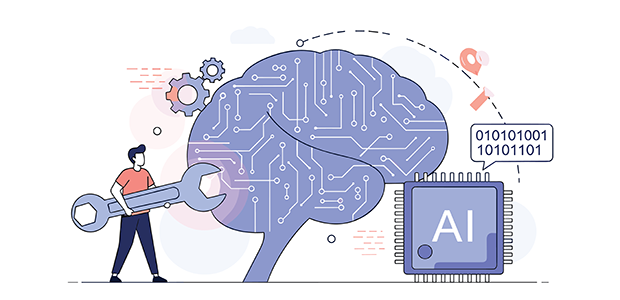
Europe’s top AI innovators rely on sector expertise and soft skills
Data from the skill profiles of 23,000 professionals across 3,600 AI startups reveals that Europe’s top AI innovators combine tech expertise with sector-specific and ‘soft’ multidisciplinary skills – outperforming those reliant only on general tech and computing skills.
Coauthored by EIT Health and EIT Digital, both part of the European Institute of Innovation and Technology (EIT), a body of the European Union, a new report – AI Skills and Occupations in the European Start-up Ecosystem – analyses the largest live dataset of AI startup talent in Europe, examining the skill profiles of over 23,000 professionals across 3,600 AI-focused startups.
While technical skills related to coding, programming and machine learning are common, AI startups that combine them with sector expertise – such as in healthcare, engineering, or manufacturing – and broader soft skills like project management and communication are linked to stronger regional innovation output. In contrast, regions relying only on general IT skills are falling behind.
The findings are sourced using EIT Health’s SkillSync platform, a tool designed to benchmark and forecast the skills needed to drive Europe’s AI economy. The report cross-references these skill profiles with the European Innovation Scoreboard to highlight which workforce capabilities are most strongly linked to innovation performance.
“Competence in general IT skills alone does not drive innovation. To truly unlock AI’s potential, we need to go beyond just digital skills and cultivate advanced, interdisciplinary capabilities that reflect the real-world needs and opportunities of each sector,” said Dr Magí Lluch-Ariet, Data Manager at EIT Health.
The report comes as the European Commission strengthens its AI leadership ambitions, with the AI Continent Action Plan launching a raft of AI-focused initiatives. In January, the UK government has launched its own AI Opportunities Action Plan with an emphasis on AI skills and talent.
The report suggests how local skills gaps could be addressed to drive innovation. For example, startups in Eastern Europe could benefit from a focus on multi-disciplinary ‘soft’ skills and sector-specific skills. This would allow them to build on their extremely solid base of skills, such as in ICT, which are extremely prevalent in AI startups, even if not correlated with regional innovation output on their own.
In addition to supporting startups, EIT Health has long explored the implications of AI for the wider healthcare workforce. Its 2020 report, Transforming Healthcare with AI, highlighted the importance of preparing healthcare professionals for digital transformation.
“Innovation doesn’t happen in isolation. At EIT Health, we see through our programmes that real impact comes from bringing education, research and business together in practical ways. This report reinforces that it’s not just about connecting these sectors – but about enabling the flow of skills between them. Whether it’s AI in healthcare or other cutting-edge technologies, the most successful innovations are driven by diverse, applied capabilities – technical, scientific, managerial – that our programmes are designed to nurture and deliver,” said Graham Armitage, Director of Delivery, EIT Health.
The AI Skills and Occupations in the European Start-up Ecosystem report is available to download now. The report includes regional data, key policy recommendations, and insights to support AI workforce development across Europe’s healthcare and innovation sectors.
For more startup news, check out the other articles on the website, and subscribe to the magazine for free. Listen to The Cereal Entrepreneur podcast for more interviews with entrepreneurs and big-hitters in the startup ecosystem.

